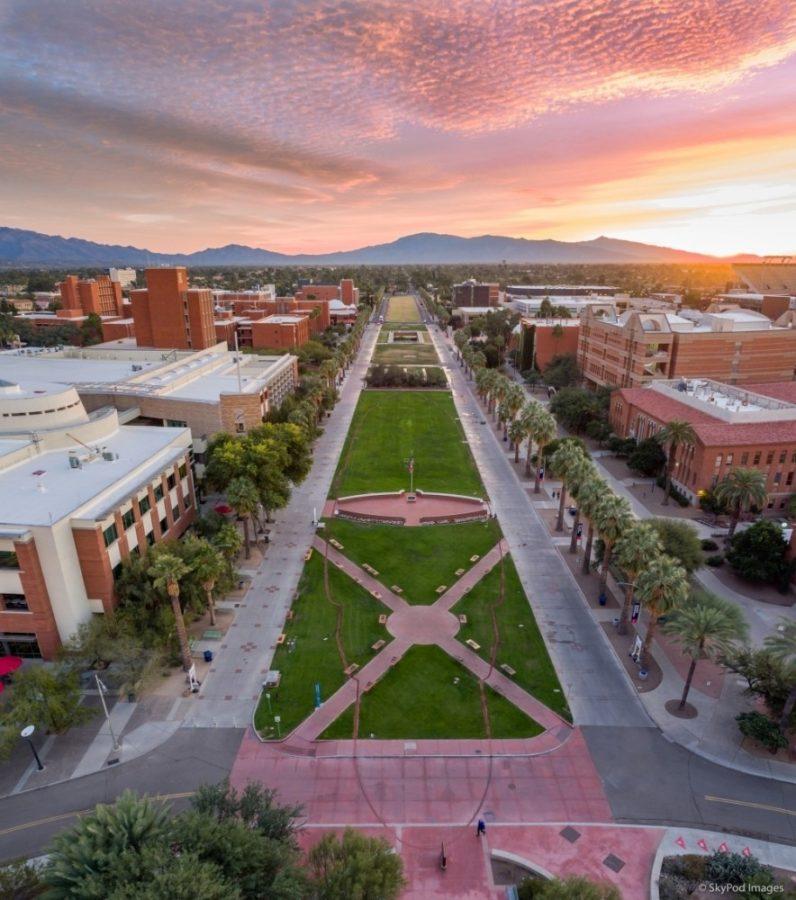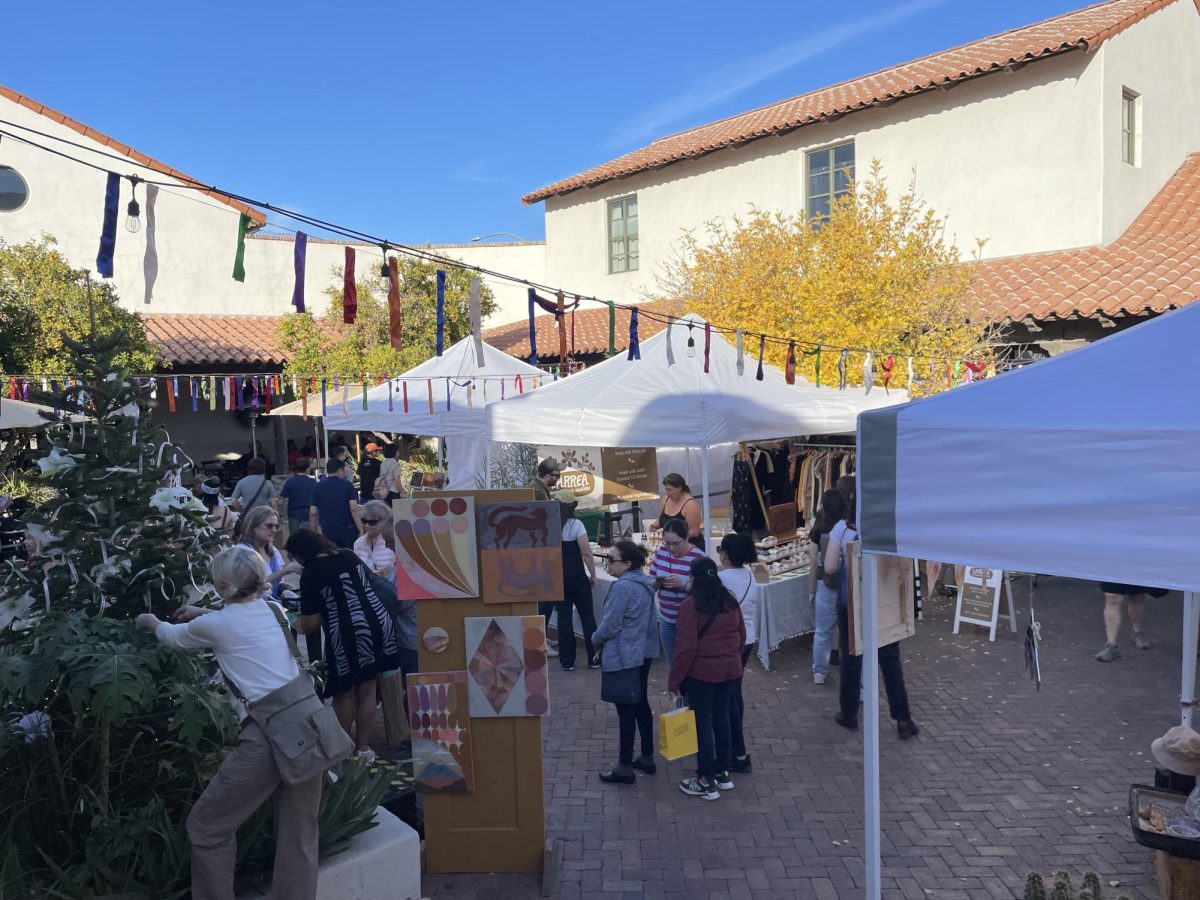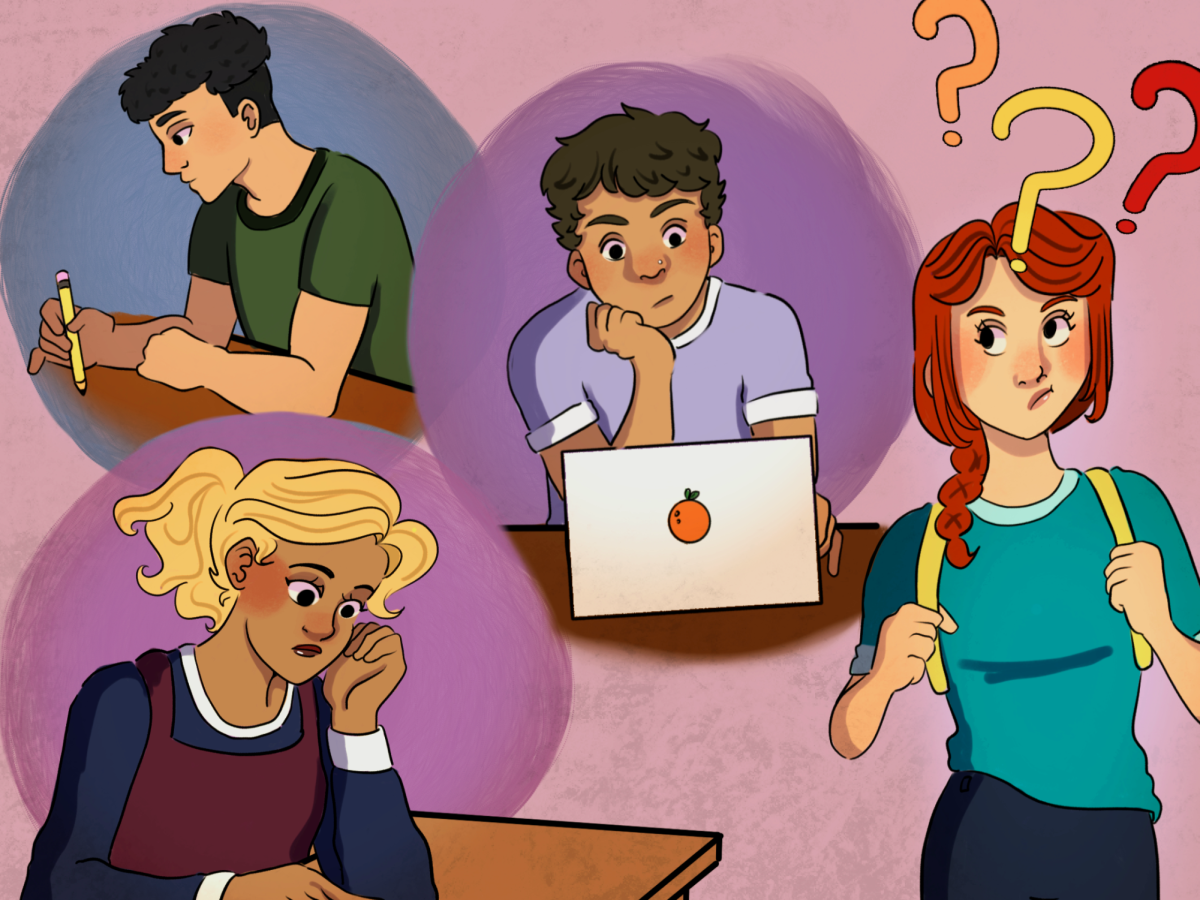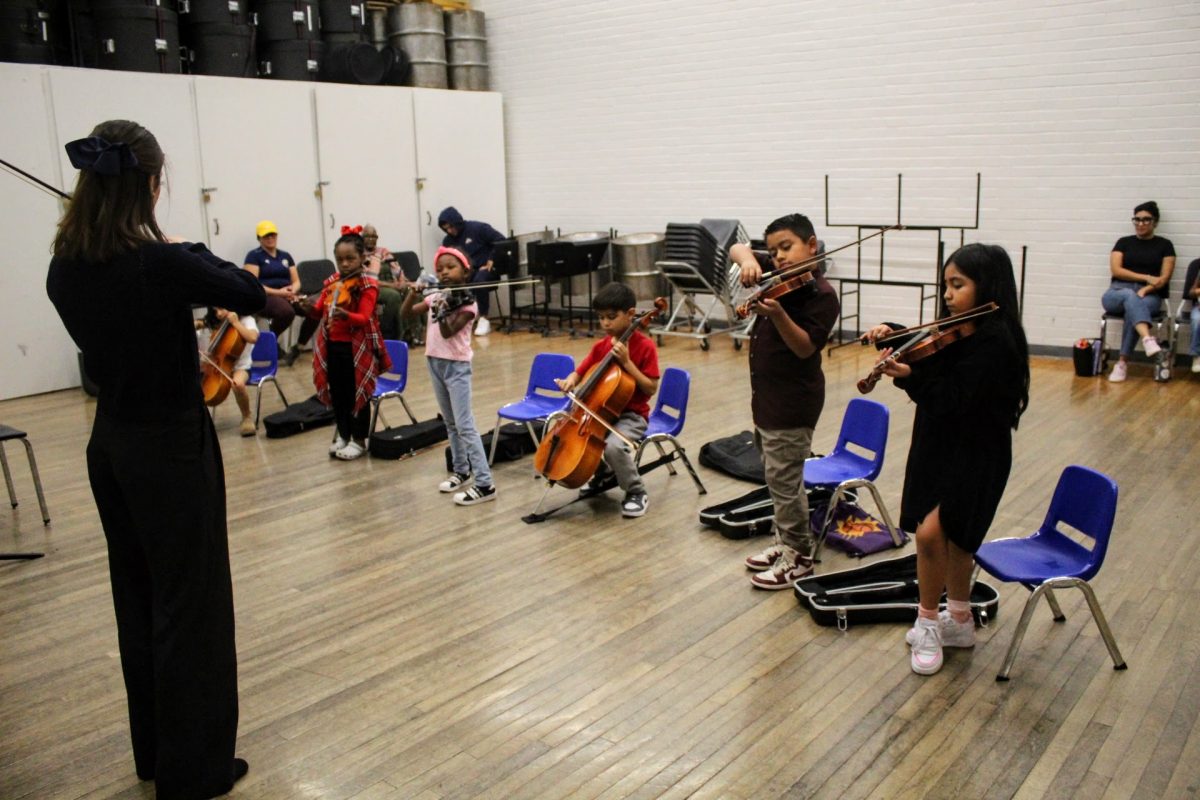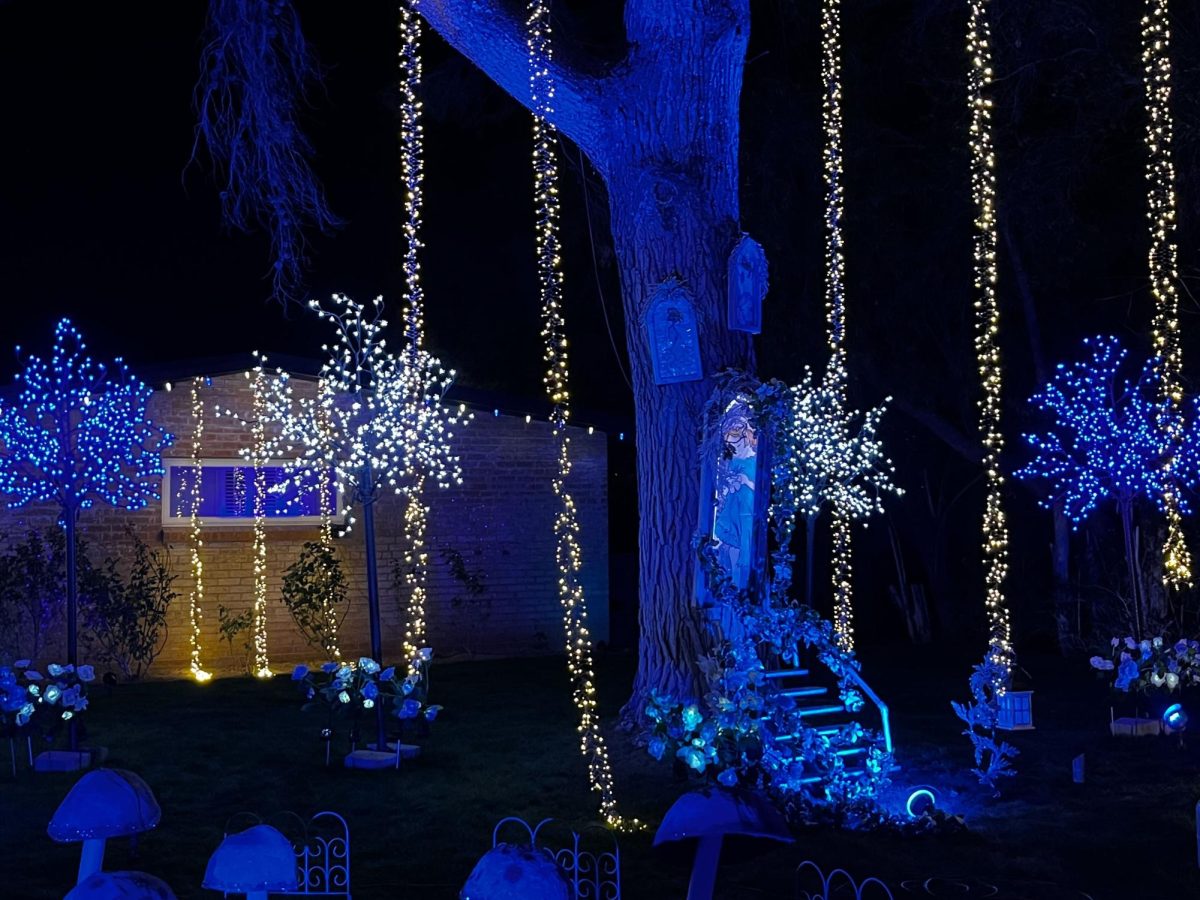The University of Arizona College of Social and Behavioral Sciences has brought together a group of diverse women to start important conversations about female empowerment. The virtual lecture series, “Woman Power,” will be hosted online throughout the month of October. The five-part lecture series features six women: Kate Bernheimer, Elise Lopez, Lisa Sanchez, Sonja Lanehart, Michelle Tellez and Yalitza Aparicio, who stitch together a narrative of power imagined, power contested, power wielded, power spoken and power represented.
Michelle Tellez, assistant professor in the UA Department of Mexican American studies, along with “Roma” actress Yalitza Aparicio, host the power represented lecture debuting Oct. 29.
“They are centering the research and perspective of women doing dynamic work and it brings attention to this research that I think is often ignored,” Tellez said.
Tellez grew up on the U.S. and Mexico border, which she said greatly impacted her work. Her projects examine immigration, gender and identity along the U.S. and Mexico border. As the daughter of a Mexican immigrant mother who was also a domestic worker, Tellez said she, “really related to that role that [Aparicio] was bringing and making visible.”
“For me, it’s about bringing attention to some of the issues that we’re facing here in the state of Arizona for migrants and indigenous peoples, in the hopes that people will learn more, educate themselves more and hopefully take action,” Tellez said.
Tellez said that she was very thankful for her mother, “who instilled in us to value our culture and where we come from.” She said she hopes that with her lecture she can get the UA community “to think about representation beyond numbers and more as a way of life.”
RELATED: LGBTQ+ culture in UA Athletics
Elise Lopez, director of the UA Consortium on Gender-Based Violence, leads the power contested lecture, which centered around rape and skepticism, and premiered Oct. 8.
“There are a lot of people that don’t necessarily support this work or think that it’s a bunch of feminazis. That completely still exists, even among women, which is surprising,” Lopez said.
Lopez’s interest in the topic began while she was doing research on criminal justice and working with girls in substance abuse programs.
“I met so many teenage girls who had been abused in some way, and most of them had either not been believed or they felt like they had been blamed for what happened and they weren’t necessarily getting the help they needed,” Lopez said.
RELATED: “Boys State” and youth politics
Being a white-passing Mexican woman, Lopez said that she has existed in a lot of different cultures.
“One of the [threads] in this is women often being disbelieved or being blamed for bad things that happen to them … I think that’s something that transcends cultures,” Lopez said.
Lopez stressed the importance of having these conversations, particularly in a university setting, because many people still doubt the extent to which women in college face rape and sexual assault.
“The first national study on it came out in 1987, and that’s when they found the statistic that one in four women experience rape or attempted rape in college,” Lopez said. “And since then, that stat has been replicated in studies over and over and over again. So it’s been 35 years and we haven’t made a dent in it.”
Lopez hopes that by shining a spotlight on the issue, she can encourage the UA community to seriously reflect.
“Until people believe that something is a problem and that it affects their life — they can know it’s a problem, they can agree it’s a problem,” Lopez said. “But until they internalize that it affects their own lives, they are not going to be willing to do something about it.”
RELATED: Pride in a pandemic: Virtual parade held by Tucson Pride
Kate Bernheimer is an associate professor in the UA English Department. Bernheimer’s lecture on power imagined focused on fairytales as survival strategies. She said that she fell in love with storytelling as a child and that, “storytelling and a lot of introspection about difficult truths were definitely a part of [her] cultural upbringing.”
Bernheimer grew up greatly influenced by the historical-cultural trauma of Latvian genocide on her mother’s side and said she turned to storytelling and art in order to imagine better ways of being.
“I grew up acutely aware, sadly, of Anti-Semitism and racism and violence against women. Often times quite personally,” Bernheimer said in a text message. “It is no wonder my work involves protecting the brave, oft-abused characters in fairy tales and protecting fairy tales themselves, the truest of which are against abuses of power.”
She said she thinks that having these types of conversations is vital.
“It’s really important ethically to give a voice to the communities that hold the stories, hold the truth,” Bernheimer said. “And to emphasize how powerful these voices are, in a chorus especially.”
Bernheimer’s lecture was released Oct. 1 and she said that she was pleasantly surprised by the number of viewers she received from all around the world.
“Each speaker in the series has something very different to say but we’re connected in some special way,” Bernheimer said. “I think it’s very important to listen to the stories.”
If you are interested in registering to attend one of the remaining lectures or wish to watch the ones already released, visit https://sbs.arizona.edu/dls-2020.
Follow Tia Stephens on Twitter



